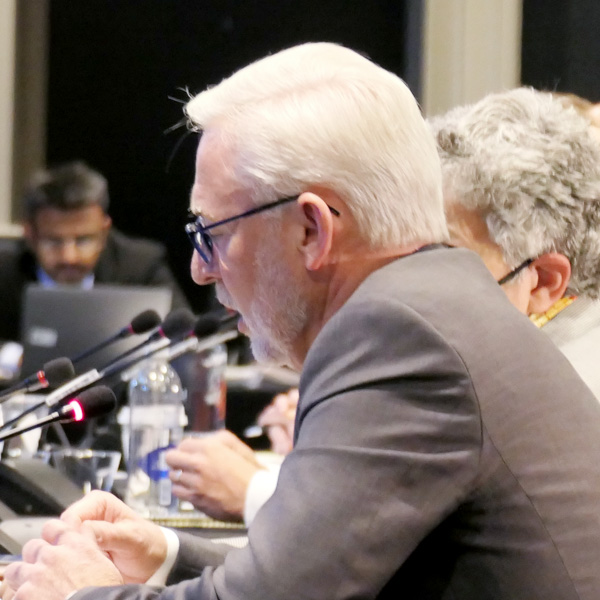DR Data Proposal Rejected
VALLEY FORGE, Pa. — The PJM Market Implementation Committee narrowly rejected a proposed issue charge from curtailment service provider CPower Energy Management that would have sought to expand access to data from retail demand response customers.
Stakeholders cited pending legislative efforts at the state level and concerns about utilizing statistical sampling instead of collecting data from households directly. (See NJ Eyes Rules to Protect, Gather Advanced Metering Data.)
Paul Sotkiewicz, of E-Cubed Policy Associates, questioned if statistical sampling could be an adequate substitute for direct household data and said that the belief that residential use tends to be homogenous may be a poor assumption. If sampling was to become standard, he said that could discourage states from pushing smart metering technology down to the residential level.
“I don’t find it very appealing that either because somebody didn’t do their due diligence … that PJM and the rest of its membership should be beholden to that and have to settle for statistical sampling,” he said.
Two Alternatives on VOM Advance to MRC
Two competing proposals from PJM and Constellation Energy to address variable operations and maintenance costs advanced to the Markets and Reliability Committee meeting on Sept. 21.
The PJM proposal, which passed with more than 70% support, would include default adders for minor maintenance and operating costs, clarify the definitions of major and minor maintenance, create a new review process and timeline, and clarify the requirements for supporting documentation.
The Constellation package, which passed with 54%, contains the same provisions as the PJM document, but it would include nuclear refueling costs and associated major maintenance under a generator’s capacity offer rather than its VOM energy offering.
Constellation’s Jason Barker said that defining refueling as a variable cost is inconsistent with how maintenance is conducted on nuclear units.
“This is a significant change in that respect because they are deeming most, if not all, the maintenance done in a reactor fueling as variable,” when nearly all of it is fixed, he said. (See “Variable Operations & Maintenance Cost Development,” PJM Market Implementation Committee Briefs: Aug. 10, 2022.)
Rather than vote for their preference of the two proposals, Barker encouraged stakeholders to vote against them both, pushing the revisions back to the Cost Development Subcommittee for additional rewriting. He said those meetings tend to see less participation and said a better package could be formed there through input from more voices. Instead, the MRC will consider both proposals.
IMM, PJM to Collaborate on Manual Revisions Prior to MRC
The MIC endorsed a slate of manual revisions to conform with FERC’s order approving revised energy price formation rules (EL19-58, ER19-1486), but discussion regarding the impact some of the changes will have on hydropower resources led to a request that PJM staff work with the Independent Market Monitor to finetune the language.
The committee endorsed by acclamation revisions to manuals 11, 27, 28 and 29. But before it did, the Monitor raised concerns that the Manual 11 changes were inconsistent with the Operating Agreement’s provisions and would limit the amount that hydro resources could offer as reserves.
The Monitor did not have proposed revisions to present, and some stakeholders expressed frustration that its presentation was only posted the day prior to the meeting. Barker noted that the tight time frame before the Oct. 1 implementation of the manual revisions could make it challenging for hydro operators, such as Constellation, to get a firm understanding of any changes before they’re responsible for compliance.
PJM and Monitor staff pledged to work together, with input from hydro stakeholders, on a friendly amendment that the Monitor would offer at the MRC when the revisions are brought up for a vote at that committee.
Other MIC Business
Because other agenda items ran over their allocated time (See related story, PJM, Monitor Debate Black Start Fuel Requirements Proposals.), work on an IMM proposal addressing capacity offer opportunities for generation with co-located load was postponed. A special session of the MIC will be scheduled to continue discussion of the issue.
The MIC also reviewed PJM’s proposed capital budget, which would increase spending to $45 million, a $3 million increase over current funding. The budget was first presented at the Planning Committee the day before and was also shown to the Operating Committee the next day. (See related story, “Planning Committee Reviews Capital Budget,” PJM Planning Committee Briefs: Sept. 6, 2022.)
Finally, the committee endorsed routine revisions to Manuals 18 and 18B, deleting outdated information, correcting and clarifying existing provisions or practices, and adding administrative updates.


